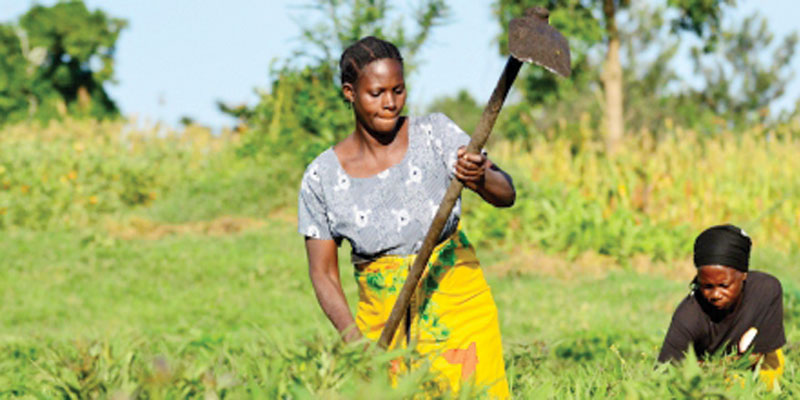
The Women’s Alliance of Business Associations of Zimbabwe (Wabaz) has complained that some of its members in the agricultural sector were being sidelined or evicted from their land.
The group, which was trained by the Southern Africa Parliamentary Support Trust (SAPST), appeared before the Parliamentary Portfolio Committee on Lands, Agriculture, Mechanisation and Development on Tuesday where they revealed how some traditional chiefs prohibited women from owning pieces of land due to cultural beliefs.
Judith Mhizha, the chairperson of Wabaz, said although an estimated 42% of households in the country were headed by women and 65% of women also working in agriculture, Zimbabwe was ranked 172 out of 186 countries on the global gender inequality index.
“Our members in the agriculture sector have applied for allocation of land, but they have not yet received responses from the respective rural councils. And some of our members who had been allocated pieces of land were later forcefully evicted from the estates,” Mhizha said.
“We have also noted with concern the cultural beliefs in some areas that prohibit women from owning land, and the chiefs in those areas are reluctant to allocate land to women on the grounds of such traditional beliefs.”
Ruth Ndawana from the Zimbabwe Women Economic Empowerment said there was unfair distribution of farming equipment, with men constituting the majority of beneficiaries.
“We understand that government is in the process of crafting the National Land Policy and we request that gender issues be considered in this process in order to ensure that women’s rights to land are clearly spelt out,” she said.
Depina Nkomo of Zimbabwe Women Farmers’ Trust said access to irrigation was difficult for women, adding their crops and livestock were severely affected by climate change.
- Chamisa under fire over US$120K donation
- Mavhunga puts DeMbare into Chibuku quarterfinals
- Pension funds bet on Cabora Bassa oilfields
- Councils defy govt fire tender directive
Keep Reading
“Our members face challenges in accessing affordable loans, with most financial institutions that offer affordable loans requiring collateral in the form of title deeds before they issue loans. Most of the title deeds are registered in the husband’s name, thereby making it impossible for women to access loans,” Nkomo said.
Plaxedes Madzivire said other challenges they faced were related to marketing of their produce as well as value-addition.
“The imported fruits and vegetables flooding the local market have made it very difficult for local farmers to get market for their produce. Some farmers have had their produce rotting in the fields because they failed to get buyers for it. Those who manage to get a market sell their produce for very little because of stiff competition from low-priced imports,” Madzivire said.
Wabaz deputy chairperson Irene Mukarate urged government to take steps to stop flooding of imported products, adding imports should only be allowed into the country to cover shortages so as to ensure local produce had a market.











